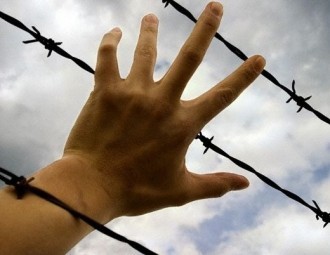Aleh Korban: “Political prisoners” Forum is foremost a message to the West

The organizers of the Forum realize that the event won’t directly influence the release of political prisoners; but it reminds Western politicians about the primacy of morality in dialog with Minsk.
The announcements of the Forum that took place in Minsk on October 15 laconically state that the possible ways of Belarusan and foreign structures for the fastest release of political prisoners are to be discussed. Aleh Korban, the head of the “Alternative” civil union, one of the initiators of the forum says that it is the moral aspect of the problem that plays the main role there.
- It is very important to demonstrate that no one and nothing is forgotten, as well as show that the problem of political prisoners is to remain primary on the agenda, - says Aleh Korban in the interview with EuroBelarus Information Service. – Now there is a tendency of underestimating the problem of political prisoners, as if Ukraine’s problems make the fact of presence of political prisoners in Belarus very insignificant. The initiators and organizers of this forum believe that this question is due to be first in relations between Belarus and the West. And if some dialog between Belarusan authorities and Europeans is taking place, the problem of political prisoners in the dialog with the official Minsk should be prioritized.
Korban marks that “clearly, we won’t release political prisoners after the forum; however, it will remind the Western politicians about the primacy of morality in their dialog with Minsk”.
- It is done to support those who are behind bars as well as their relatives. I think it is a good moral thing to do. By the way, the relatives of the political prisoners are also invited to the forum. We have never had such large-scale event dedicated to this issue before.
The civil activist believes that European politicians shouldn’t forget about the importance of political prisoners in negotiations with the Belarusan authorities, which have been recently activated.
- Before holding negotiations between the House of Representatives and PACE and solving some economic issues all political prisoners have to be released. This is the requirement set by most political parties and civil society organizations in Belarus. The problem of political prisoners should be closed in its wide sense, i.e. including the issue of arbitrary arrests.
Appeal to the European politicians and diplomats is to be adopted, too.
- We haven’t prepared a joint resolution or specific statement yet, but we plan to do it during the forum.
Besides, “a list of personae non grata with Lukashenka’s 20-year rule is to be presented”.
- There are several hundred persons in this list; not only those who got imprisoned but everyone who was repressed by the authorities, including those who are missing.
Meanwhile, one more political prisoner might appear in Belarus in the near future. According to Deputy Chairman of the Human Rights Center “Viasna” Valiantsin Stefanovich, unless the appeal of the recently convicted Gomel activist Yury Rubtsou is changed, he will be declared a political prisoner.
-
03.01
-
07.10
-
22.09
-
17.08
-
12.08
-
30.09



























